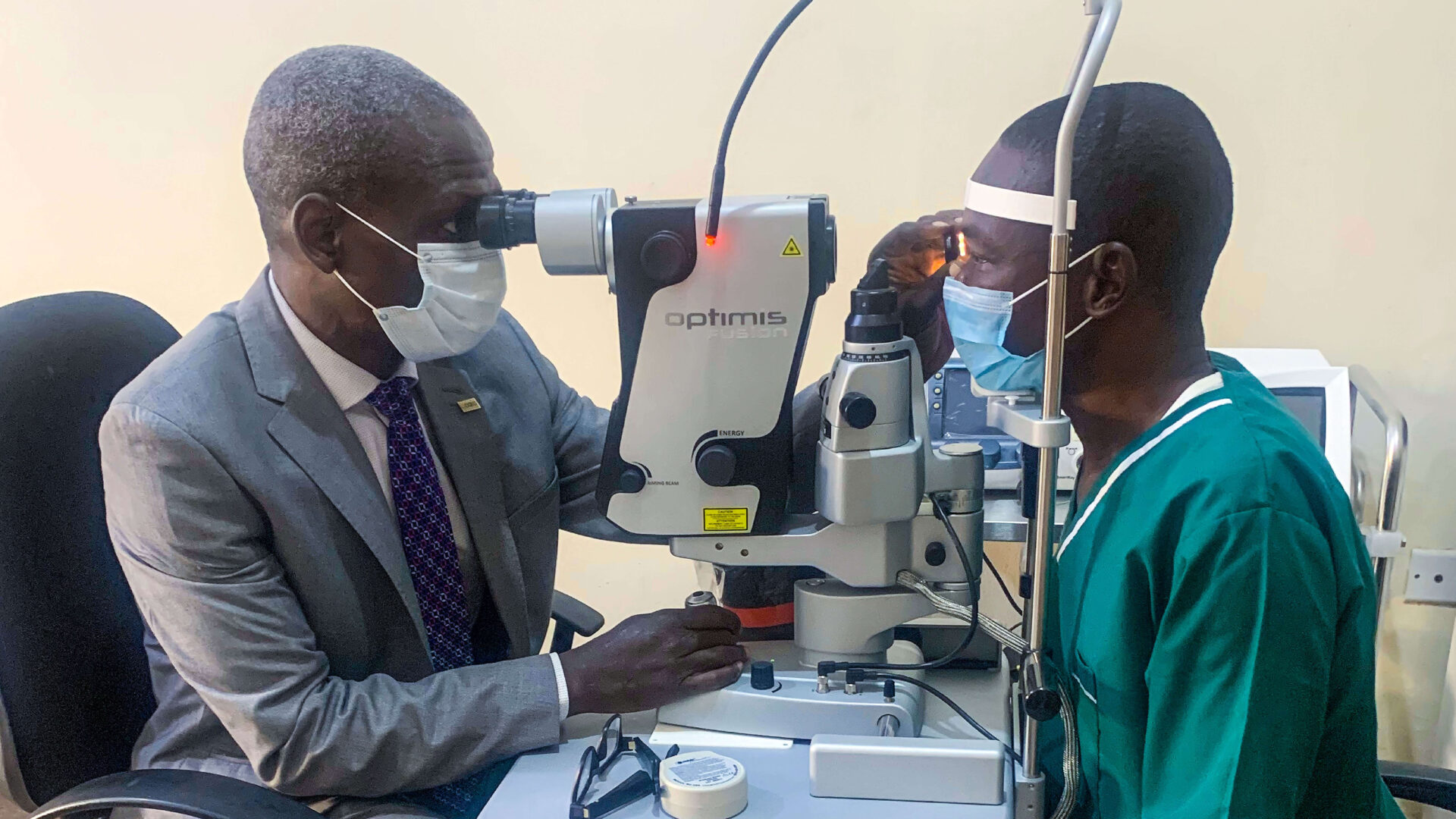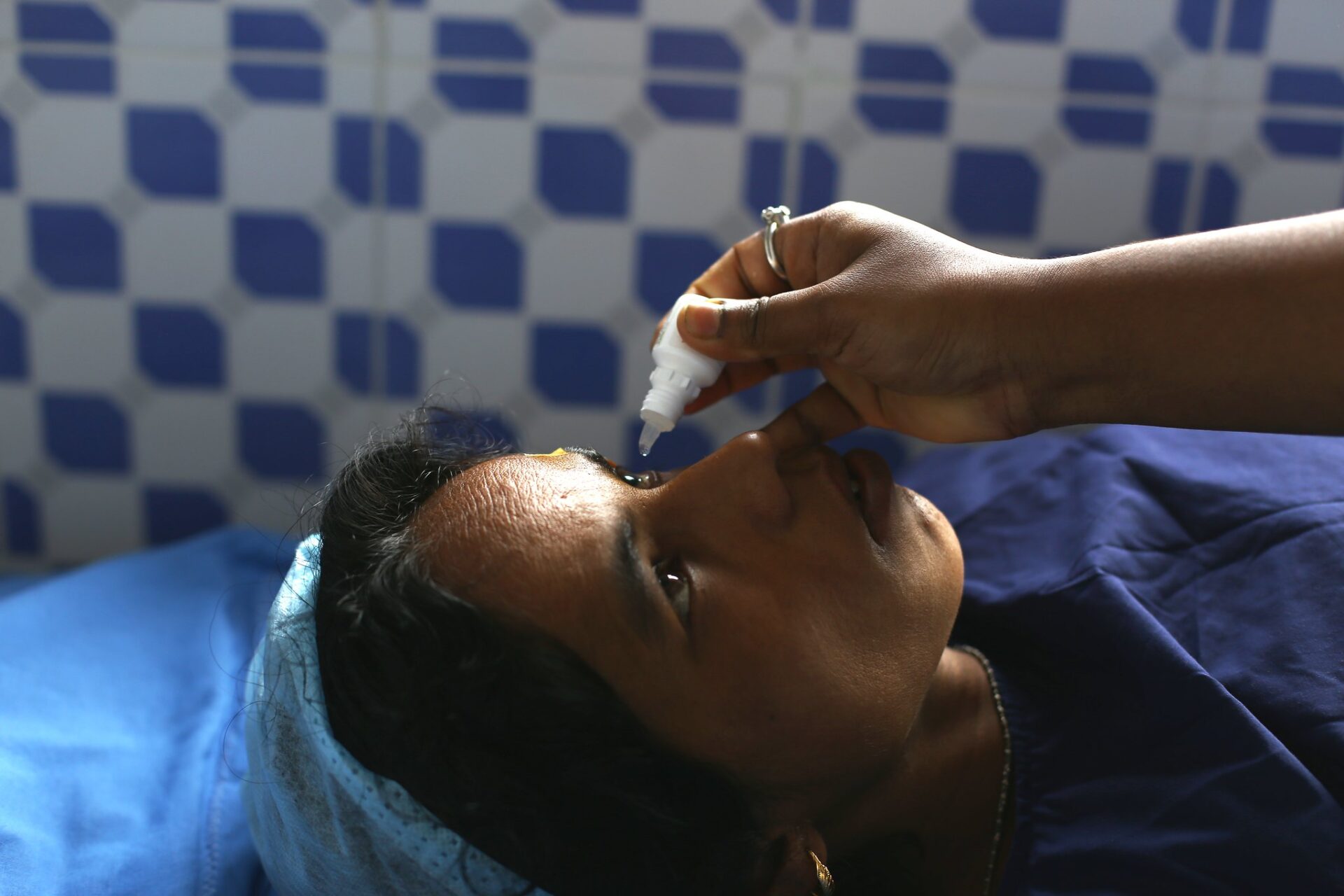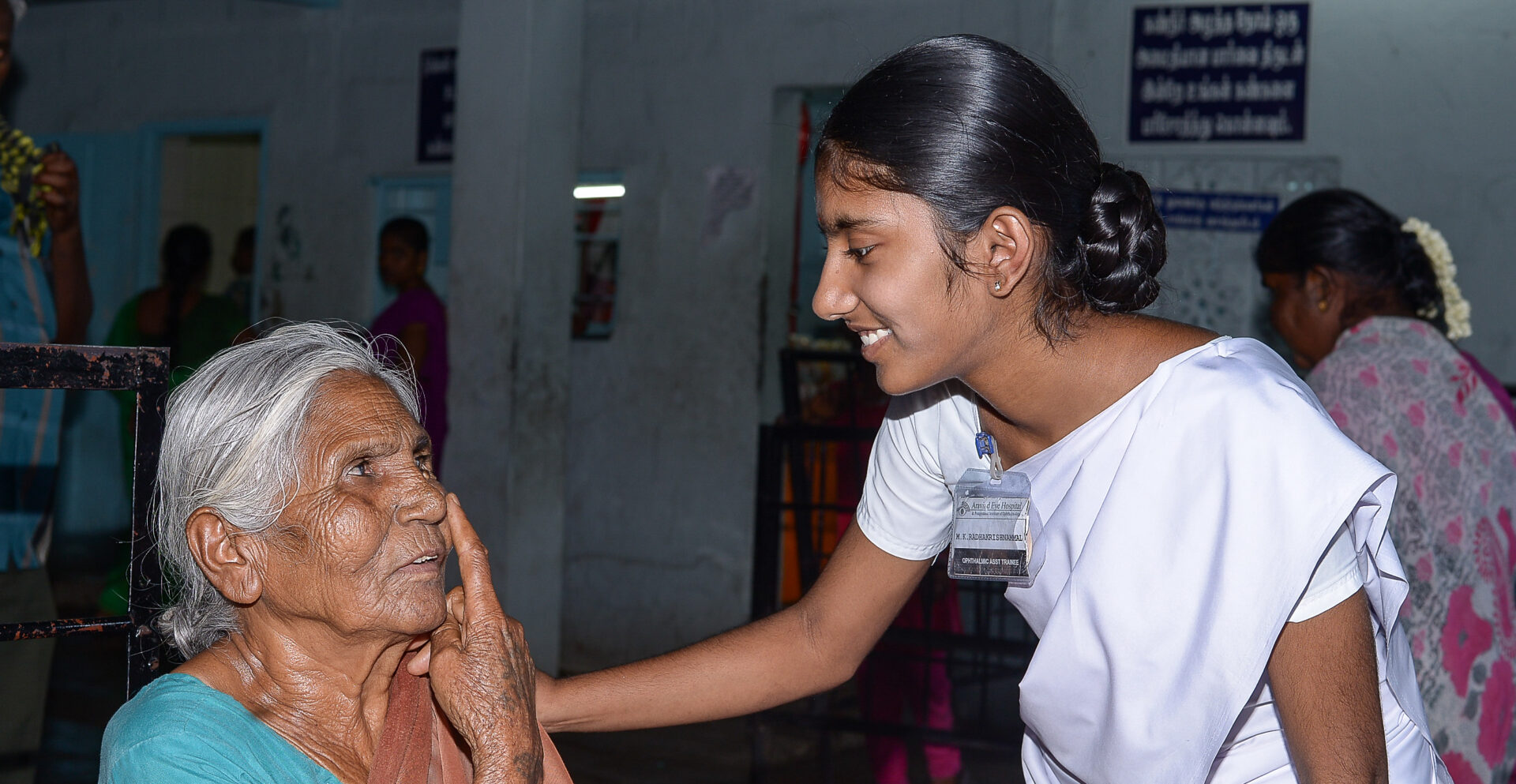In Nigeria, managing chronic glaucoma is challenging as patients usually present very late. Available treatments rely on daily eye drops or surgery for which adherence or acceptance by local populations is poor. Adapted treatments are therefore necessary to manage this chronic disease.
Discover
Glaucoma treatment considering local context in Nigeria
Although one of the leading causes of blindness worldwide, glaucoma does not hurt – and at first, it does not impair the patient’s vision. Therefore, patients often seek medical care at late stage of the disease when the irreversible vision loss is already advanced.
Prevalence of glaucoma is higher in people of African origin; the condition starts at much younger age and shows a more aggressive course than in other populations. A typical glaucoma patient of a consultant ophthalmologist in Nigeria, comes from a rural area, is uneducated and already blind with one eye. Often people with a health problem first visit a traditional healer and traditional eye medication can lead to secondary eye problems. Recent population-based surveys of adults in Nigeria and Ghana reported a glaucoma prevalence of 5-6% and 9% and up to 20% of those affected were already bilaterally blind. These clinical challenges greatly increase the risk for blindness and underline the need for reducing blindness from glaucoma in Africa.
Once diagnosed, lost vision cannot be restored, but treatment can halt the progression of the disease. Treatment options are the daily use of eyedrops or surgery, but acceptance in the local population is poor. Compliance to regularly use eye drops is very low and patients fear and refuse surgery. Therefore, an alternative therapy is needed to improve the situation. A one-off treatment has been recommended for glaucoma care in Africa and laser treatment might be the way forward to tackle this problem.
Project lead


Associate Professor and Consultant Ophthalmologist, Abubakar Tafawa Balewa University Teaching Hospital, Nigeria


Consultant Ophthalmologist, Glaucoma Service, Moorfields Eye Hospital NHS Trust, UK
Transfer
The need for an effective, acceptable, safe and economic treatment
The potential for laser treatment is promising: There is a reported demand from local ophthalmologists to have an alternative and effective solution to propose to their patients. Laser treatment is expected to be acceptable to patients as it is performed as outpatient procedure and requires little post-operative care and follow-up visits. This reduces cost and inconvenience to the patient. Such an alternative treatment would be therefore easily transferred to clinical practice.
With the International Agency for the Prevention of Blindness (IAPB) who runs the initiative “Focus on glaucoma”, an important stakeholder is involved. The agency puts high priority to find ways to control and manage glaucoma and will be crucial to disseminate the newly gained knowledge. During the world glaucoma week in 2021, the launch of “A Glaucoma Toolkit for Africa” outlined the development of a toolkit and presented its learnings.
Based on the results of this study, a larger randomized controlled trial is planned. It will provide evidence for clinical services through guidelines and protocols and inform national policies. A future project will also provide the opportunity to train more consultant ophthalmologists in the various forms of laser treatment. Already today, Dr Abdull is in great demand to train ophthalmologists across the country and he has already trained 50 consultant ophthalmologists.

Change
Providing evidence for improved treatment outcomes
Treating glaucoma with eye drops is easy and non-invasive. Unfortunately, it is an ineffective treatment in the context of a low- and middle-income country. Eye drops might not always be availTreating glaucoma with eye drops is easy and non-invasive. Unfortunately, it is an ineffective treatment in the context of a low- and middle-income country. Eye drops might not always be available, could be fake or lose potency due to poor storage conditions. Eye drops also need to be used daily for the rest of the life. Without experiencing relief or pain, it is very easy to forget to use them.
The second treatment option, surgery, is often refused by patients when it is done on their only seeing eye. Surgery has been recommended as a treatment option for Africans, but many consultant ophthalmologists see practical medical and socioeconomic indications that discourage this option. The surgical procedure shows higher failure in Africans than the average European. Further, patients who live in rural areas with poor sanitary conditions and long travel times to reach the hospital are at a disadvantage to have good post-operative care which is necessary for a positive outcome.
Laser treatment is a promising alternative, as it is less invasive than surgery. The different available laser treatment approaches all have their pros and cons. While there are studies providing evidence for the effectiveness of some of these laser treatments, the evidence is based on studies undertaken in other regions. As glaucoma cannot be prevented and ethnicity is one of the major risk factors, it is essential to assess the effectiveness of the different laser treatments for a region with such a high burden of disease.
The study wants to measure effectiveness and acceptance of four different modalities of laser treatment (and which factors influence this), evaluate the safety of these procedures, explore if factors such as stage of the disease or previous medication can predict the effectiveness for each modality, as well as collect contextual information and develop a Patient Outcome Experience Measure (POEM) and assess quality of life with glaucoma.
The results of this feasibility study will provide the crucial basis for a larger randomized controlled trial that will generate the necessary evidence to ultimately inform national policies as well as guidelines and protocols for clinical services.
Why we funded this project
This project represents many aspects the new ophthalmology program aims to support:
- It targets a neglected local issue with a high burden of disease.
- It acknowledges local context and acceptance as well as aims to initiate a regional solution.
- The collaboration enables a local and an established research institution to join forces and fosters bilateral knowledge and skill transfer.
Transfer
Reducing blindness from glaucoma in Africa
This project is a step further towards developing an efficient laser therapy that could be widely used to prevent the burden of avoidable blindness in Nigeria and in other countries facing the same challenge in Africa, Latin America and Asia. The vision is to reduce blindness from glaucoma in Africa.
“More solution-oriented research which incorporates the local context and aims to prevent blindness in low resource settings is highly needed.
With the new focus in their ophthalmology program Velux Stiftung is valuable partner to address the knowledge gaps and build research capacity.”
 Share
Share



